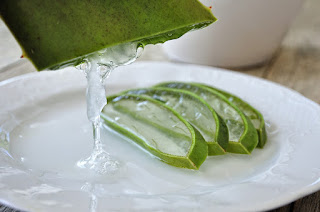DIY Skin Care With Aloe Vera

Harnessing the Power of Aloe Vera: Your Skin's Secret Weapon. In the vast landscape of skincare ingredients, few hold the same level of acclaim as aloe vera. Renowned for its soothing properties and myriad of skincare benefits, this humble plant has earned its rightful place as a staple in beauty routines around the world. In this article, we'll explore the incredible benefits of aloe vera for the skin and share some simple tips on how to create your very own aloe vera face mask. The Marvels of Aloe Vera: Aloe vera, often referred to as the "plant of immortality," boasts a treasure trove of nutrients that work wonders for the skin. Packed with vitamins, minerals, enzymes, and amino acids, this succulent plant offers a plethora of benefits, including hydration, healing, and rejuvenation. Hydration and Moisture: One of the most notable benefits of aloe vera is its ability to hydrate and moisturize the skin. With its high water content, aloe vera penetrates deep into ...


